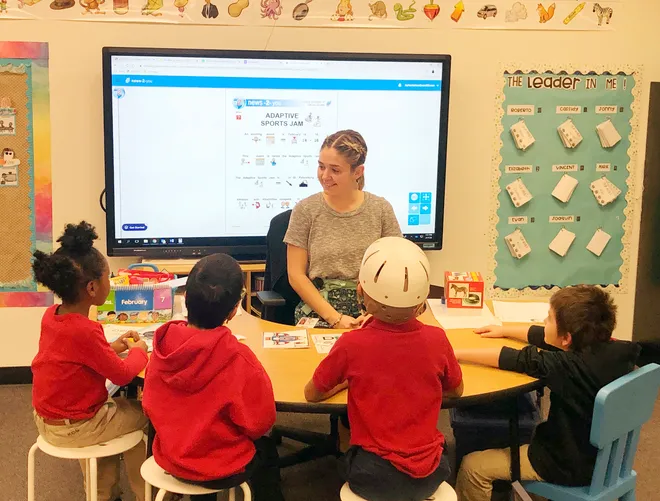3 Best Special Education Options for Parents
If you’re a parent, consider inclusive education programs, offering a welcoming environment and individualized support for your child with special needs. Specialized schools for disabilities provide tailored settings with round-the-clock care, holistic support, and vocational training. Explore individualized education plans (IEPs) for personalized academic roadmaps, specialized support, and regular progress monitoring. Each option caters to your child’s unique learning requirements, ensuring a nurturing and empowering educational journey.
Key Takeaways
- Explore inclusive education programs for community integration and individualized support.
- Consider specialized schools for tailored environments and round-the-clock care.
- Look into IEPs for personalized academic plans and necessary accommodations.
- Advocate for your child’s rights and ensure active participation in IEP meetings.
- Promote holistic development, well-being, and academic success for children.
Inclusive Education Programs

If you’re seeking a learning environment where your child with special needs can thrive alongside their peers, inclusive education programs provide a supportive and enriching option. In inclusive classrooms, children with disabilities are welcomed and supported in a setting where they can learn, grow, and socialize with their typically developing peers. This model focuses on community integration, fostering a sense of belonging and acceptance for all students.
Inclusive education programs prioritize creating a supportive atmosphere where children with special needs can access the same curriculum as their peers, with necessary accommodations and modifications. Teachers in these classrooms are trained to provide individualized support to cater to diverse learning needs, ensuring that every child has the opportunity to reach their full potential.
By promoting a culture of acceptance and understanding, inclusive education programs help break down barriers and promote empathy and inclusivity among all students.
Choosing an inclusive education program for your child with special needs can be a positive step towards their holistic development and well-being, fostering a sense of belonging and community integration that’s invaluable for their growth.
Specialized Schools for Disabilities

For parents considering specialized schools for disabilities, exploring tailored educational settings can provide thorough support and resources to meet your child’s unique learning needs. These schools often offer specialized programs that cater specifically to children with various disabilities, ensuring a more detailed approach to education.
Specialized schools for disabilities may include residential programs, offering a structured environment that supports round-the-clock care and education. These settings can be beneficial for children who require additional support beyond typical school hours.
Moreover, these schools often integrate adaptive technology into their curriculum, helping students with disabilities access educational materials in ways that suit their individual needs. Vocational training is also commonly offered, preparing students for future employment opportunities and fostering independence.
In addition to academic support, specialized schools for disabilities frequently provide therapeutic services such as counseling, occupational therapy, and speech therapy. These services aim to address the holistic needs of students, promoting emotional well-being alongside academic growth.
Choosing a specialized school can offer your child a detailed educational experience tailored to their specific learning requirements.
Individualized Education Plans (IEPs)

Consider exploring Individualized Education Plans (IEPs) as a personalized roadmap to address your child’s unique academic and developmental needs. IEPs are tailored plans designed to provide specialized support and accommodations to guarantee your child’s educational success. These plans outline specific goals, services, and accommodations that cater to your child’s individual requirements. Regular progress monitoring is a key component of the IEP process, allowing for adjustments to be made to best support your child’s growth and development.
Parent involvement is essential in the creation and implementation of an effective IEP. By actively participating in IEP meetings, parents can ensure that their child’s needs are accurately represented and that the plan reflects their child’s strengths and challenges. Advocacy strategies, such as familiarizing yourself with your child’s rights under the Individuals with Disabilities Education Act (IDEA), can empower you to effectively advocate for your child’s needs within the educational system.
Frequently Asked Questions
Are There Financial Assistance Options Available for Special Education Programs?
Yes, financial aid and scholarship opportunities can be instrumental in supporting special education programs. Seek out these options to alleviate the financial burden and guarantee your child receives the necessary education and resources they deserve.
How Can Parents Support Their Child’s Social Skills Development?
To support your child’s social skills development, consider play therapy and social groups. Encourage positive behaviors through behavior intervention and work on enhancing communication skills. Your involvement and understanding can make a significant difference in your child’s progress.
What Resources Are Available for Parents Seeking Additional Educational Support?
When seeking additional educational support, explore parent support groups for guidance and camaraderie. Individualized education plans can provide tailored assistance. Connect with these resources to navigate your child’s unique learning journey effectively.
How Can Technology Be Integrated Into Special Education Programs?
You can enhance special education programs by integrating assistive technology for personalized learning. Use interactive tools and virtual classrooms to cater to diverse needs effectively. Embrace technology to create engaging and inclusive educational experiences for all students.
What Are the Long-Term Outcomes for Students in Special Education Programs?
As a parent considering special education programs, you may wonder about long-term outcomes. Students can achieve academic success, develop socially, access employment opportunities, and work towards independent living through tailored support and ongoing commitment.
Conclusion
As a parent exploring the world of special education, it’s important to explore all options available.
Inclusive education programs, specialized schools for disabilities, and individualized education plans (IEPs) are all great choices to support your child’s unique needs.
Remember, you aren’t alone in this journey. Seek guidance from professionals, connect with other parents, and trust your instincts to find the best fit for your child.
Keep advocating and supporting your child every step of the way.

Hey there! 👋 I’m a proud mom and passionate writer, sharing my parenting journey. 📝 Join me as I navigate the ups and downs of motherhood, offering tips, advice, and a sprinkle of humor along the way. 🌟







